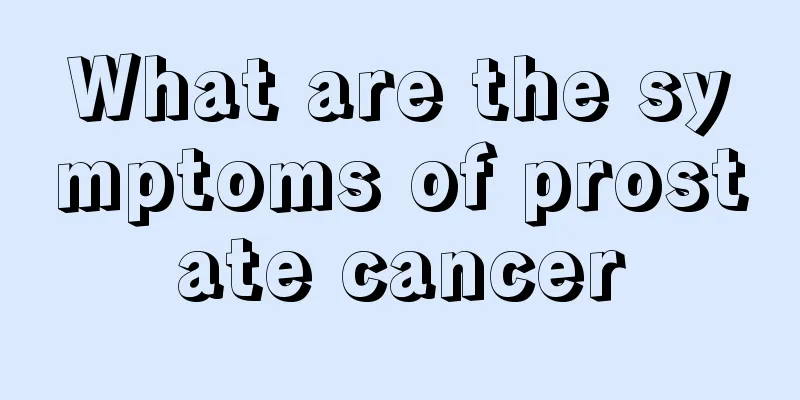What are the symptoms of prostate cancer

|
The symptoms of prostate cancer are generally not obvious, or even if they occur, they are easily ignored by patients. It is recommended to learn about this disease because it is the most common malignant tumor disease in life today, so be vigilant. The following is a summary of the symptoms of prostate cancer: Symptoms of prostate cancer: systemic symptoms Because prostate cancer patients will experience some systemic symptoms, such as pain, long-term pain will affect the patient's diet, sleep and spirit, making the patient's overall condition gradually weak, followed by weight loss and fatigue, progressive anemia, and eventually develop cachexia or renal failure. Prostate cancer symptom 2: urination disorder Dysuria is one of the common symptoms of prostate cancer patients. About 80% of patients will experience progressive dysuria, thinning of urine flow or deviated urine flow. Some patients will experience bifurcated urine flow, prolonged urination, frequent urination, urgency, pain when urinating, and a feeling of incomplete urination. In severe cases, urine dripping and urine retention may occur. Only 3% of patients have hematuria. Prostate cancer symptom 3: pain Clinically, about 31% of prostate cancer patients experience pain. The pain is most common in the waist, sacrum, buttocks, and hips. Pelvic and sciatica pain are common and severe and unbearable. It may be caused by cancer metastasis to the bones or invasion of nerves or hydronephrosis and kidney infection. Symptoms of prostate cancer 4: Metastasis symptoms In the late stage of prostate cancer, patients will also experience some symptoms of metastatic cancer due to the metastasis of the tumor. About 1/3 or even 2/3 of patients have lymph node metastasis when they first see a doctor, mostly in the iliac, iliac, waist, groin and other parts. It can cause enlarged lymph nodes in the corresponding parts and swelling of the lower limbs. Hematogenous metastasis is more common in bones (such as pelvis, sacrum, lumbar spine, upper femur, etc.) and internal organs (such as lungs, liver, brain, adrenal glands, testicles, etc.). There is no doubt that the symptoms of advanced prostate cancer are relatively obvious, but advanced prostate cancer is generally unable to be completely cured. In addition, because there is a relatively obvious high-incidence group for prostate cancer, this group of people should pay attention to the prevention of prostate cancer. |
<<: How to care for prostate cancer patients after prostatectomy and what to eat after surgery
>>: What are the prevention methods for prostate cancer
Recommend
Can glioma be completely cured?
Patients suffering from brain glioma can be said ...
What are the methods for diagnosing renal hamartoma
Renal hamartoma is also called renal angiomyolipo...
What causes rectal cancer
Rectal cancer is one of the most common malignant...
Will diplopia occur as a sequela of radiotherapy for nasopharyngeal carcinoma?
Will diplopia occur as a sequela of radiotherapy ...
Corresponding organs of the abdomen
The abdomen is a very important part of our body ...
Why do some medicines prohibit smoking and drinking? Do you know these medicines?
People should pay special attention to not smokin...
How to deal with acne on the forehead
I believe many of my friends have a certain under...
Rectal cancer symptoms
Rectal cancer symptoms: Symptoms of colorectal ca...
The fastest way to remove formaldehyde
Formaldehyde is one of the biggest problems harmf...
What is the correct way to brush your teeth?
Normally, if we eat onions and garlic, we will th...
What are the effects and functions of peppermint essential oil?
What is mint? In our daily life, we often hear ab...
What are the dietary treatments for cervical cancer?
With the progress of the times, people's livi...
What is the best medicine for skin cancer
Nowadays, skin cancer is becoming more and more c...
Pay attention to the early manifestations of ovarian cancer
The ovaries are located deep in the pelvic cavity...
What are the methods for brain cancer examination
Tumors that grow inside the skull are generally c...









